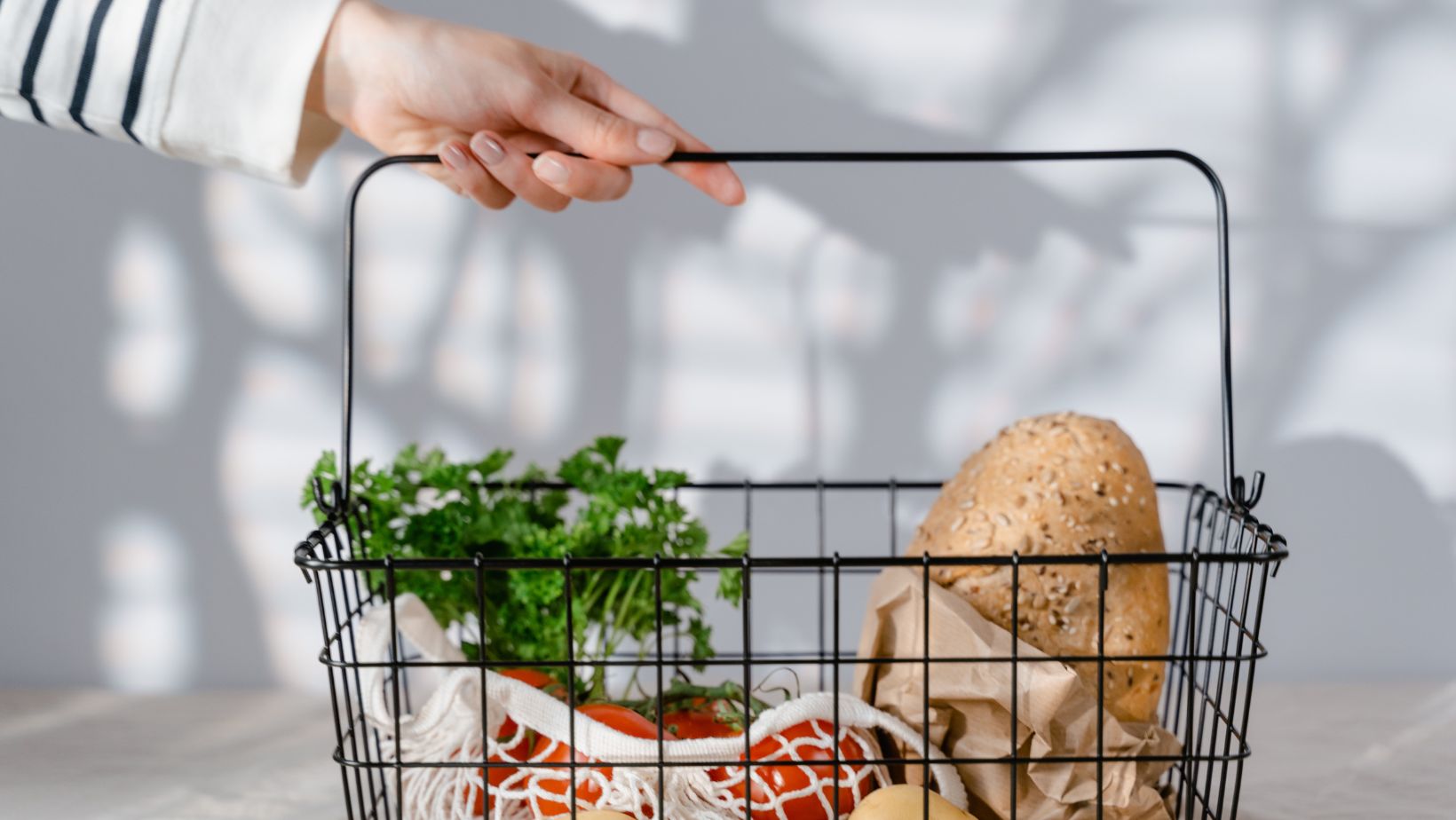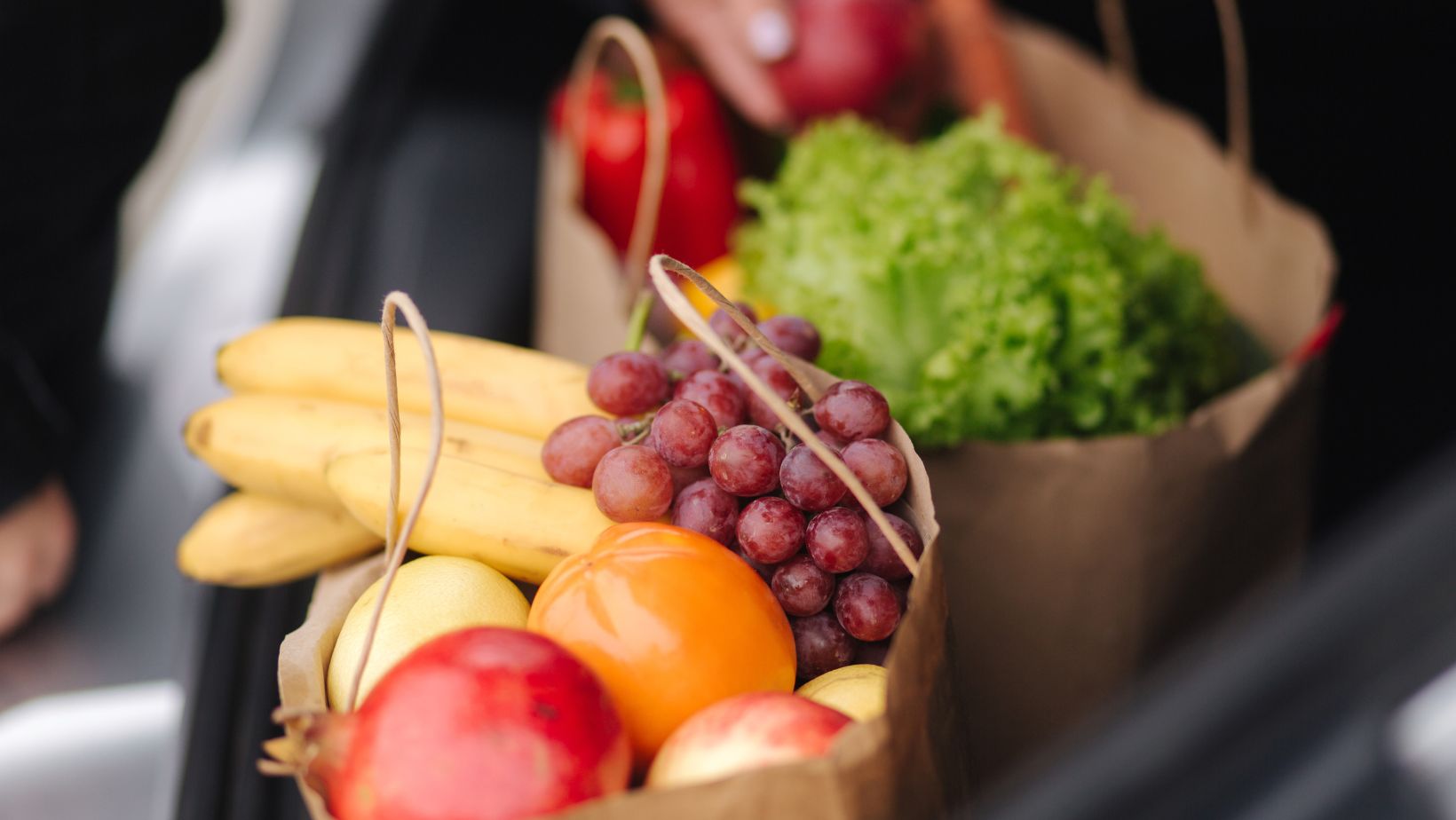Minimalist groceries: A simplified shopping list that will save money and banish food waste

Adopting a minimal lifestyle is certainly not for everybody, but it is a must-try if you’ve been looking for ways to remove clutter from your home. There’s also the bonus of saving money when following minimalism since you reduce the amount you’re spending on items that may be completely unnecessary, which you use for a very limited time or discarded soon after purchase. While clothing, furniture, and miscellaneous items around your home are often pared down as part of joining the minimalists’ ranks, one area frequently disregarded is the food.
Studies show that as much as 40% of all food produced goes to waste, meaning that the average household throws away around 1.5 tons each year. This incredible amount contributes to environmental pollution and essentially means that you’re throwing your money away. With that in mind, here are some things you should remember when grocery shopping to avoid falling prey to these pitfalls yourself.
Plan ahead
When you go into a store without a shopping list, you’ll likely start buying erratically. Planning means eliminating this possibility, so you don’t return home with several things you realise you don’t want to eat. Planning meals a week ahead also ensures that you don’t make any impulse purchases and only get the products you need. To do this, have a look at your fridge and pantry to see what you already own. If you have children or enjoy watching movies and series as a pastime activity, you might want to get some snacks as well, but as a general rule, you should stick to the list as closely as possible in order to avoid overspending.
Buy in bulk
When you’re designing your dream space, you’ll definitely look into the kitchen units that can make the space seem warm and welcoming, but which are also made from high-quality materials that can stand the test of time and not end up looking shabby as a result of moisture, stains and steam. However, you must also make sure to include plenty of storage space, as you’ll need it when changing your shopping habits. Buying rice, beans, assorted grains, pasta, flour, nuts, seeds and bouillon cubes in bulk can save money, as the unit price is lower than usual. You’ll typically have to go to wholesalers or growers in order to get the best deals. If you want to buy produce in bulk as well, make sure you can provide it with adequate storage conditions, which are preferably cool, dry and away from sunlight. Those that seem like they cannot last should be frozen until you’re ready to use them.
Whole foods
Whole foods are any foods that have not been processed and are therefore lower in sugar, salt and unhealthy fats. Eating more whole foods promotes better health and can even prevent the development or exacerbation of some chronic diseases. Just because you want to become more frugal regarding food doesn’t mean you should compromise on your health. Although there’s a stereotype that eating healthy also means breaking the bank, that doesn’t always have to be the case. You might have to shop around a little bit more instead of getting the first thing you see on the shelf, but you can undoubtedly find healthy foods that don’t exceed your budget by a lot. For a complete and nutritious diet, include oats, brown rice, barley, fish, seafood, eggs and legumes in your daily meals.
Cook at home
Cooking at home can seem like a monumental task to complete after you arrive home from work feeling hungry but exhausted. However, finding the energy to do it anyway will save you a lot of money in the long run compared to eating out every day or at least several times a week. You also ensure that your diet is much healthier, as takeaway food is typically packed with salt and unhealthy fats, hence why it can become so addictive. You can also control your portions much better this way, as well as the ingredients, which is crucial if you or someone in your family is dealing with food allergies or intolerances that can trigger symptoms immediately if the wrong ingredients are used. And, of course, there’s just something cosy and nice about sharing a home-cooked meal with your family, mainly if all of you worked to create it.
Variety
Although you’re shopping for the essentials, you should remember to make room for the things you enjoy as well. Treats are a necessary part of a healthy diet, and removing them entirely can lead to cravings and disordered eating patterns. For instance, you might enjoy making sushi at home, meaning that you’ll have to buy special sushi rice, seaweed and sushi-grade fish that is safe to consume raw. Or you might be a fan of hot sauce and feel the need to have one or two bottles in the house at all times. Since they can be used as an integral part of cooking experiments or to make leftovers more palatable, you can be confident that they will never go to waste. Chocolate bars, crisps, and other salty snacks can also be part of your diet so long as you consume them in moderation.
You should also make room in your budget for tea, coffee or smoothie ingredients, depending on which one you like to start your day with. Seasonings and spices should also be part of any kitchen, whether you’re a beginner or already know your way around your kitchen well. Paprika, Sichuan peppercorns, cardamom, saffron, cinnamon, black pepper, vanilla, oregano and bay leaves will transform even the blandest dishes. And since they’re so precious, you might want to splurge a bit here and get the stuff that’s a bit more high-end for an extra burst of flavour.
Simplifying your shopping list is often not a top priority for most people. But doing so yourself can improve your life a lot, allow you to save some money, and make your lifestyle more sustainable. It truly is a win-win situation.



 Thinking About Your Future? Here’s a Creative Way to Get Ahead
Thinking About Your Future? Here’s a Creative Way to Get Ahead  Retirement Budgeting: How to Make Your Money Work For You
Retirement Budgeting: How to Make Your Money Work For You  Shower Tray Myths Debunked: What You Really Need to Know
Shower Tray Myths Debunked: What You Really Need to Know